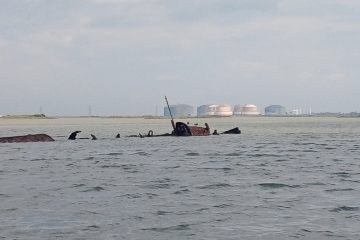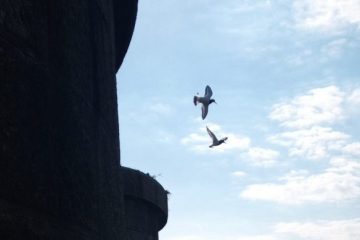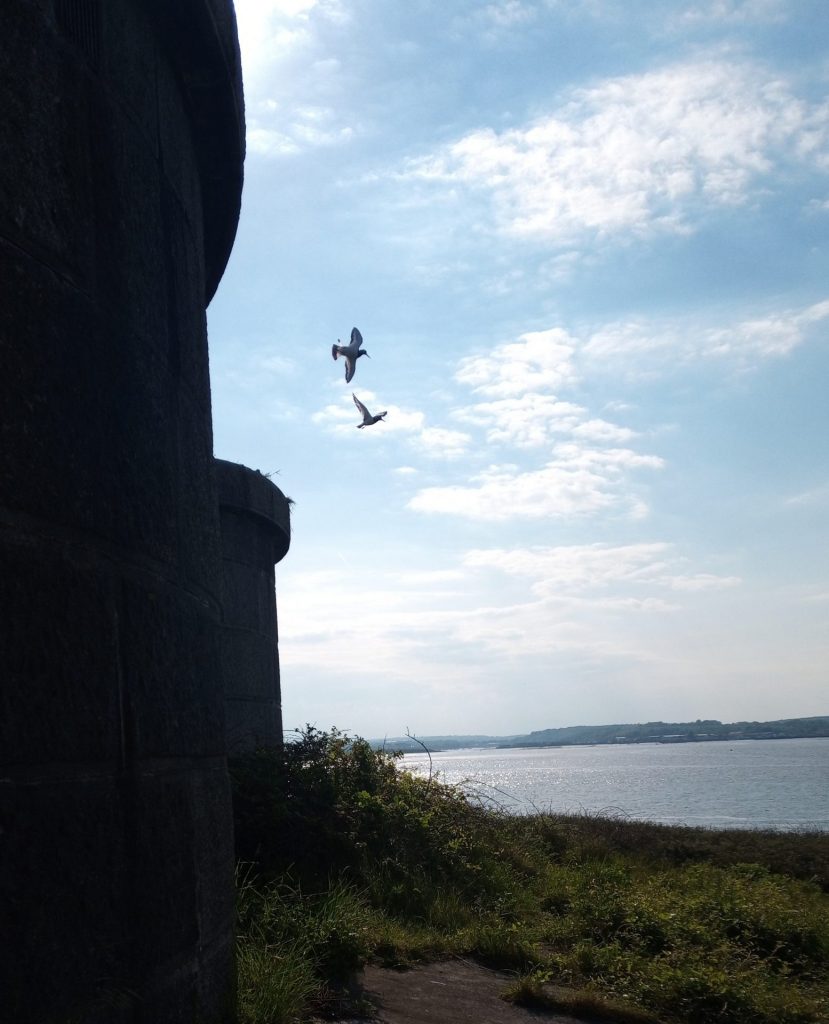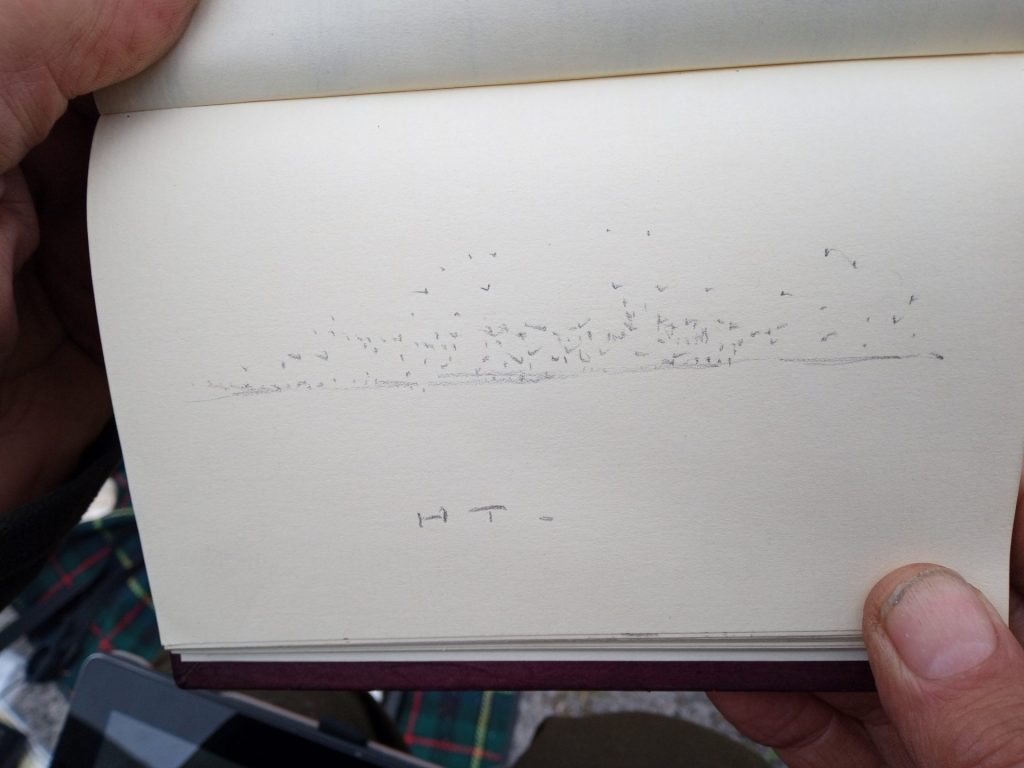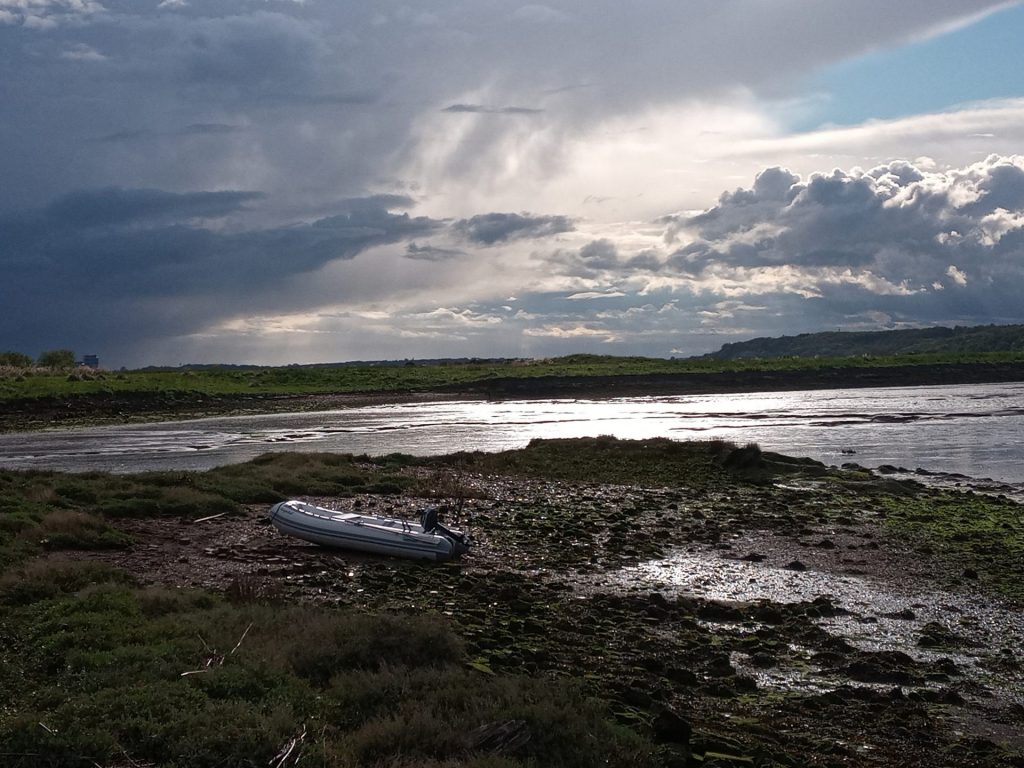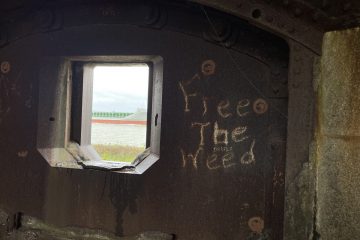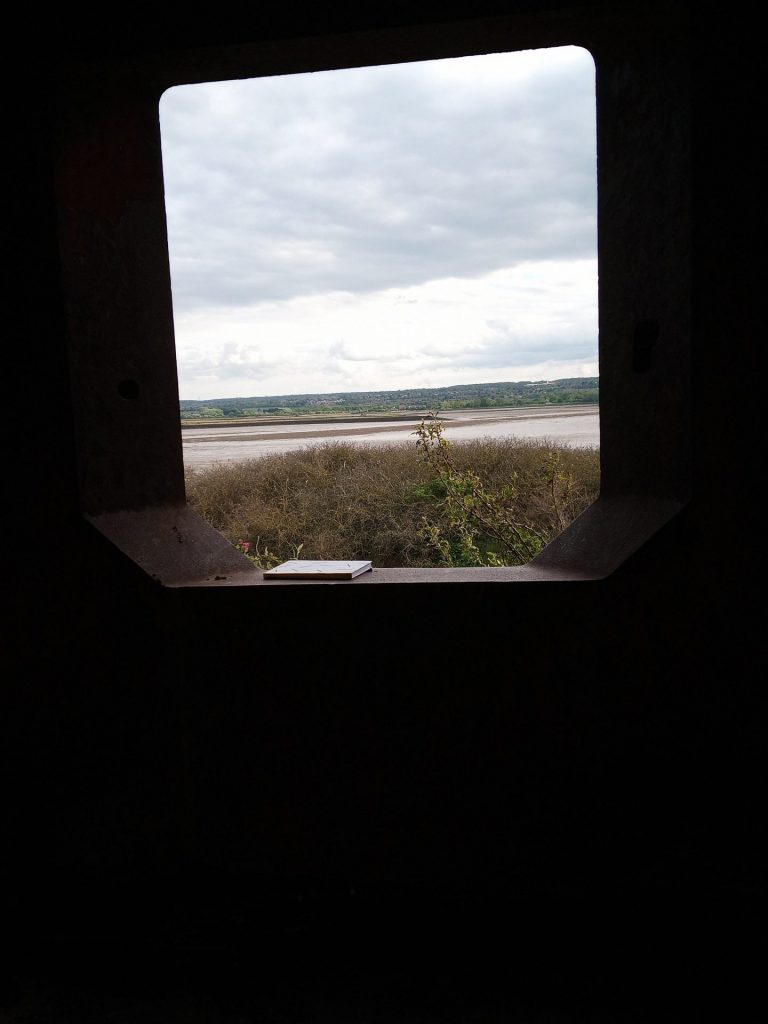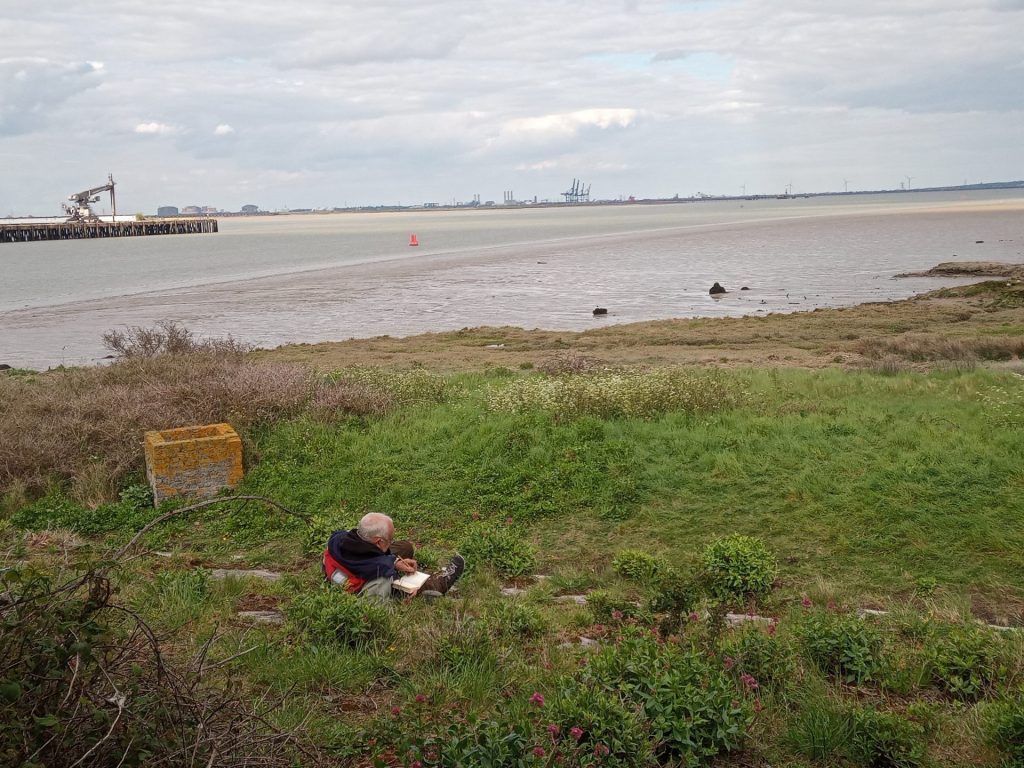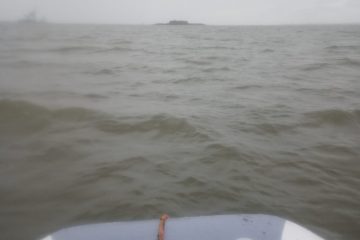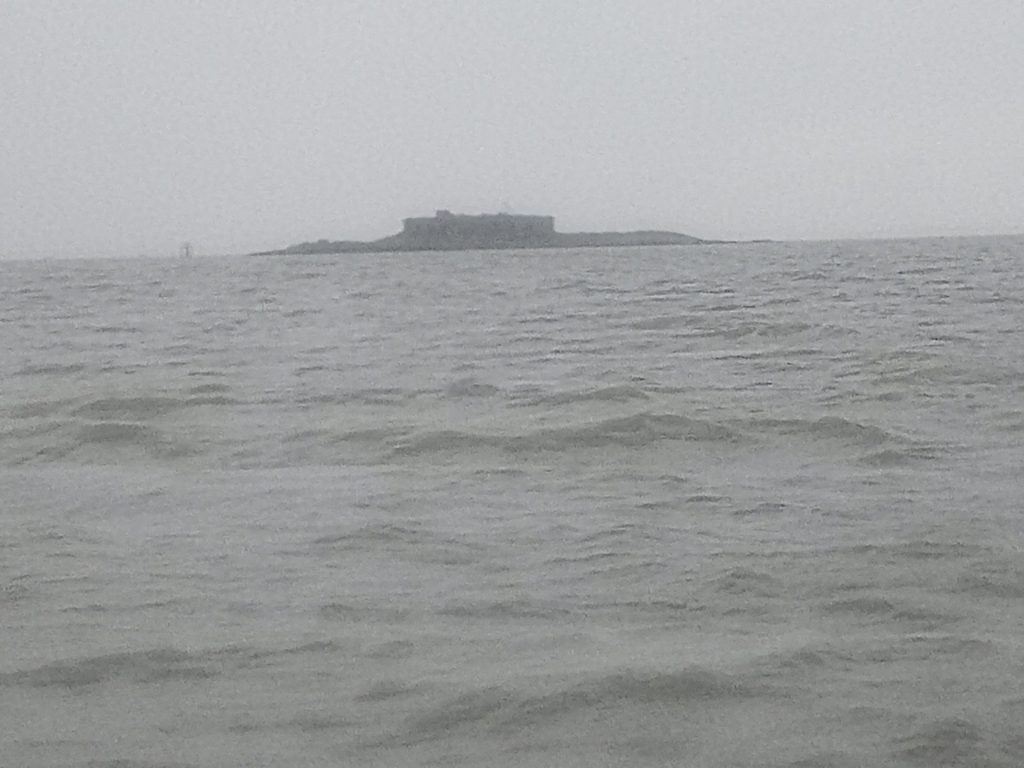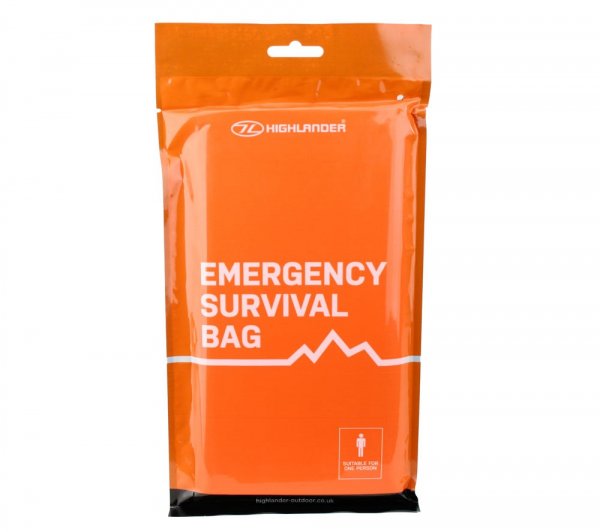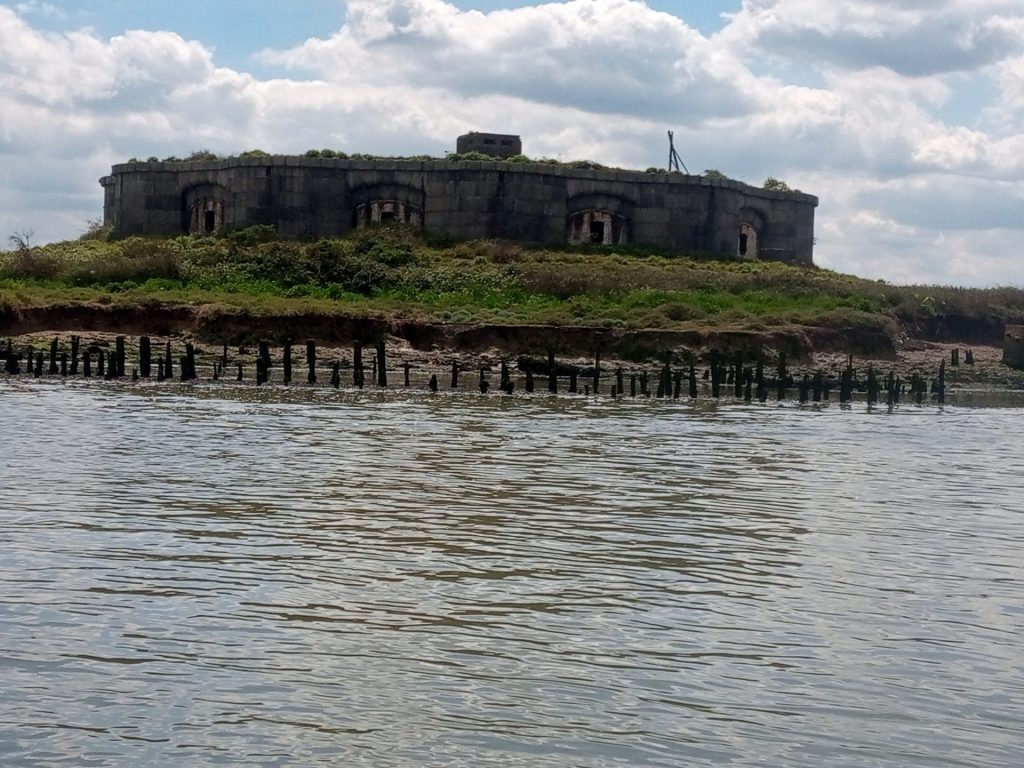
We are leaving the island, only for a few hours but we fear invaders will colonise during our absence. Not the hoards of invasive brown tailed moth caterpillars that swarm over every item we leave on the ground. No, those invaders were here first. We fear human Invaders. The island has become home.
“I’m going upstairs to fetch the water,” Steve says, referring to our fortress kitchen reached by crossing the moat on a scaffold plank that bounces and squeeks when you cross. On day one we edged across gingerly, now we are as sure footed as mountain goats. We have become Kings of a castle we both want to buy, secretly plotting to out bid each other for our 11 room villa with 360 degree river views at a mythical property auction we will one day attend with mythical savings we do not yet have.
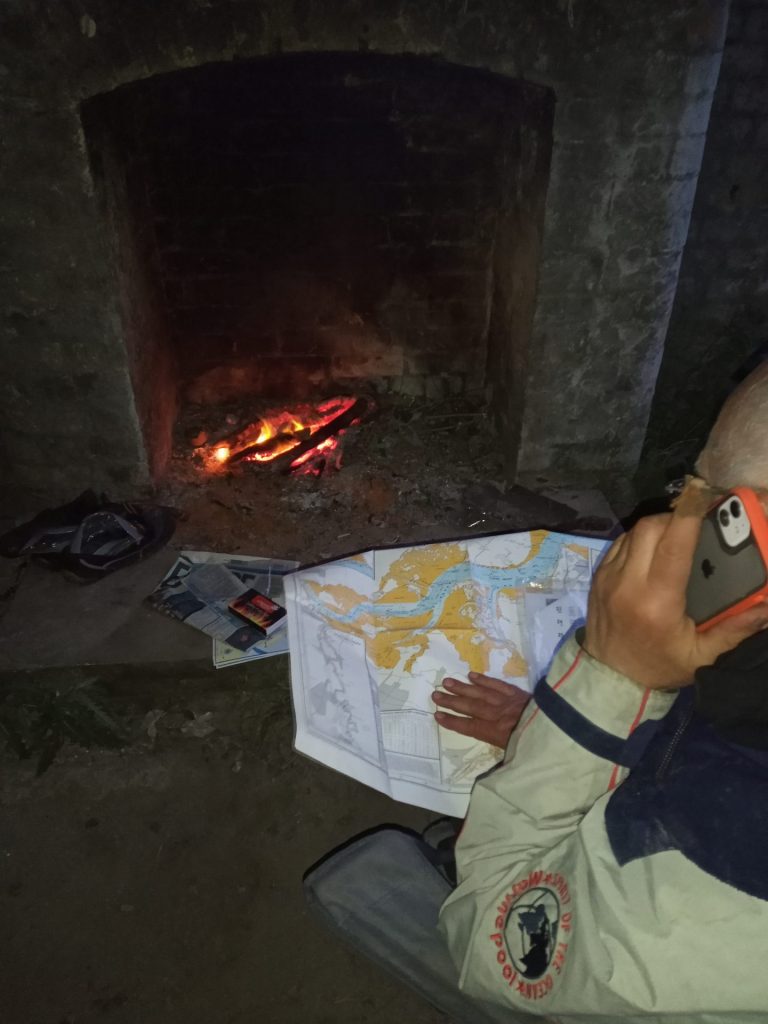
I am queen bee of this hive, regally waving at passing sailing boats from my eerie as I keep watch on the channel.
We are reluctant to leave but keen to explore so we pack the things we least want stolen, binoculars, water and cooking equipment and heave Magwitch into the water, paddling slowly away before starting the motor.
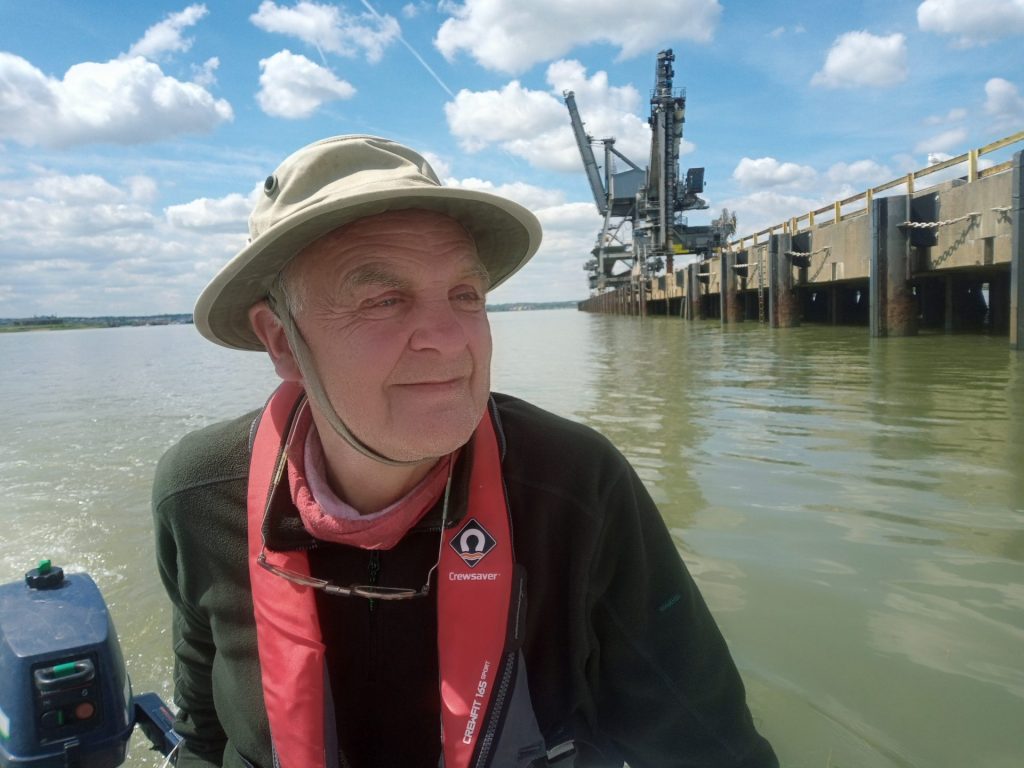
We round the island, passing the silent cranes of Kingsnorth. It is not yet high water, I hang over the front of the boat checking depth with an oar as Steve guides us under one jetty and towards the broken struts of Jetty B.
The old wooden and metal pier has been hammer punched by wind. Twisted sections of wood and iron are strung out across the channel like a broken chain of French knitting
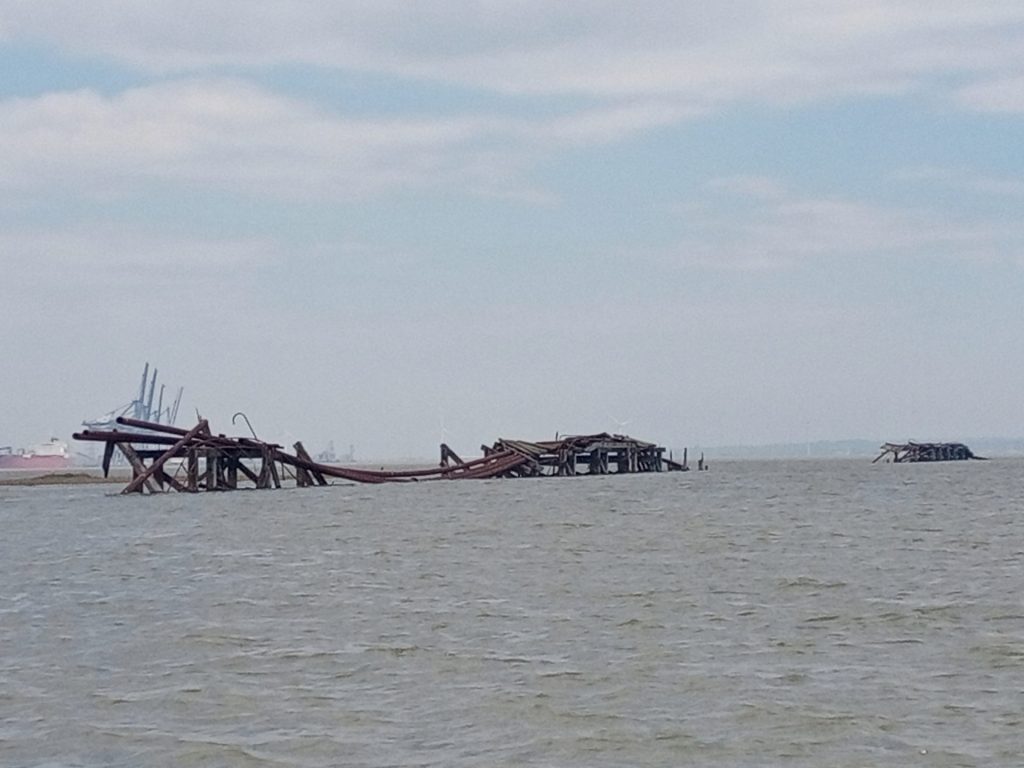
The oystercatchers are patrolling. These are the real Lords of the Estuary. On land I rarely see chicks but here a pair patrol every high mark and mud hummock. They pipe, pipe day and night, strutting in courtly dances, head down, back flattened. They march along the roof of the fort calling from beaks the colour of blood oranges.
We duck beneath the jetty, a broken sea creature, twisted in its death throws, beyond is the rusting remains of a German U-boat, spoils of war. destined to be cut up for scrap but somehow spared this ignominious fate. Now it rests in a slowly sinking mud coffin. A tourist destination that even Google maps recognises.
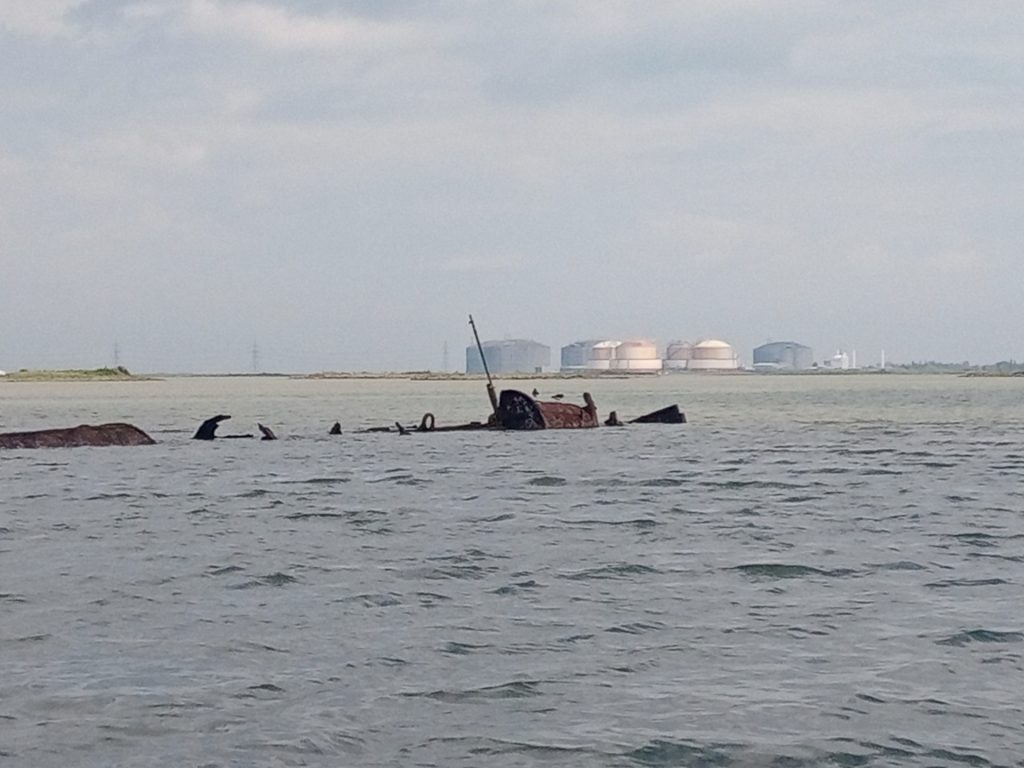
The tide is leaving us, the wind is picking up, water breaks across the bow. Jet skies churn past us at alarming speed, their riders lost in their own adrenalin rush. Magwitch is tossed around on a fair ground ride.
“There’s home,” Steve calls. The waves calm, terms skim low into the wind. The oystercatchers rush out.
“It’s our river, our island,” they call.
It seems we are the ones who are invading.
@estuaryfestival @stephenturnerartist
